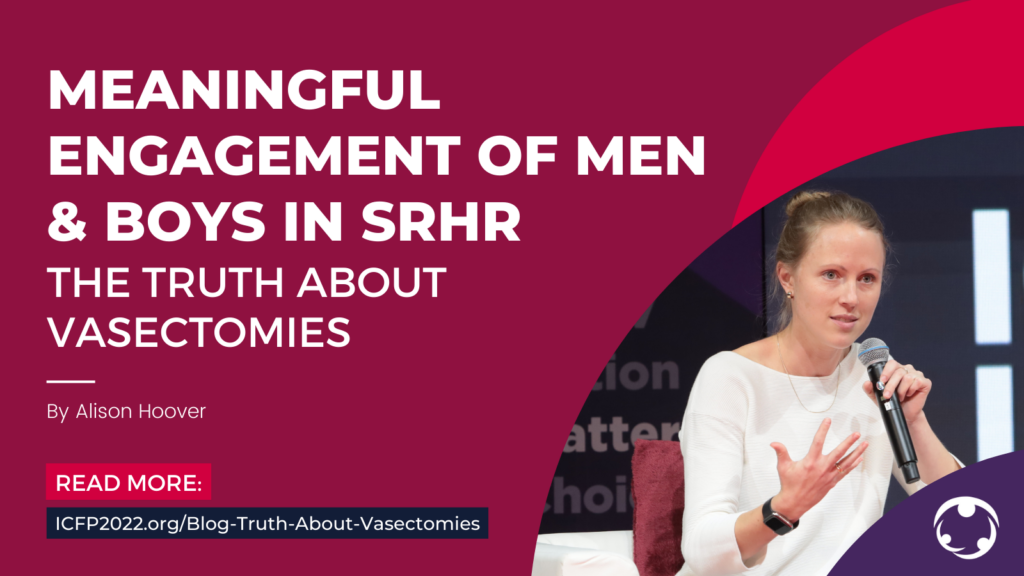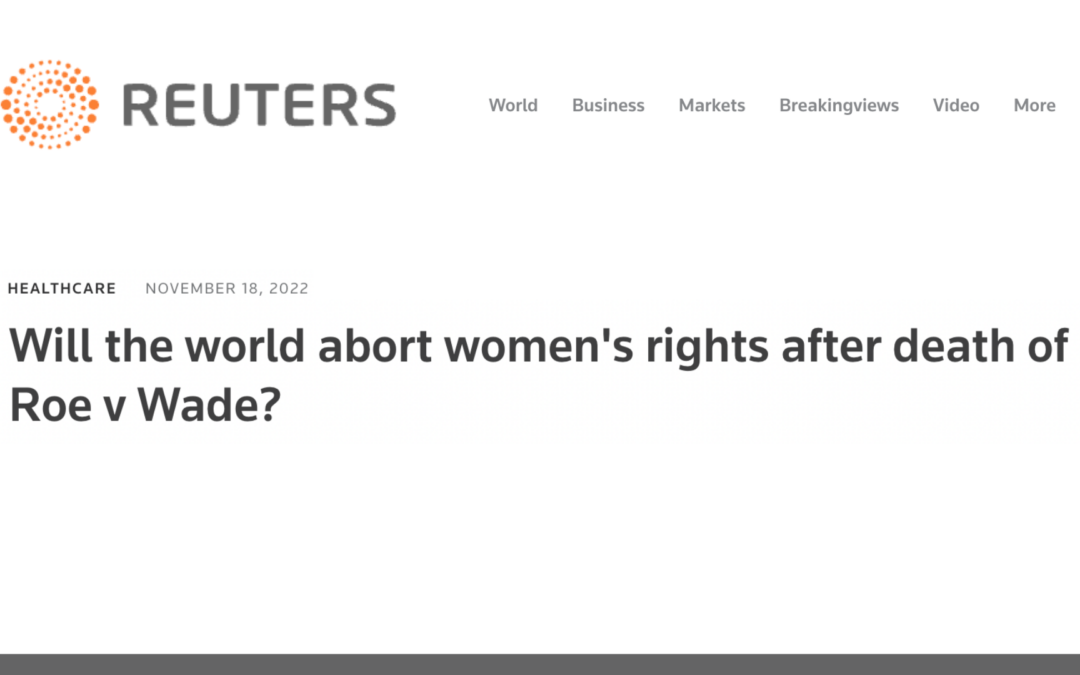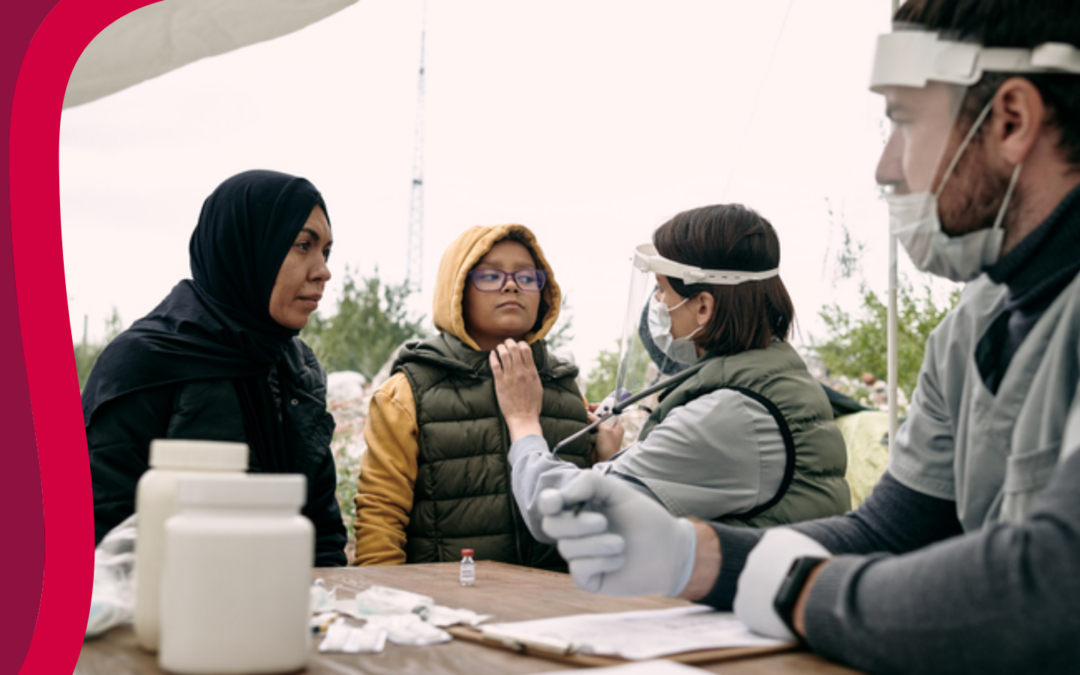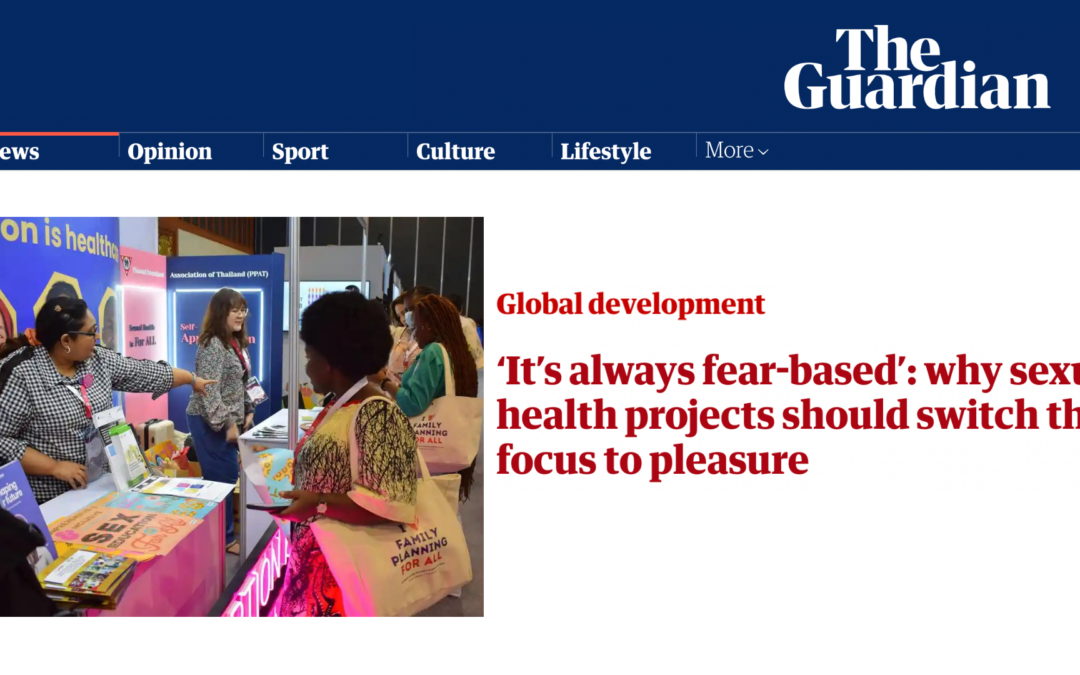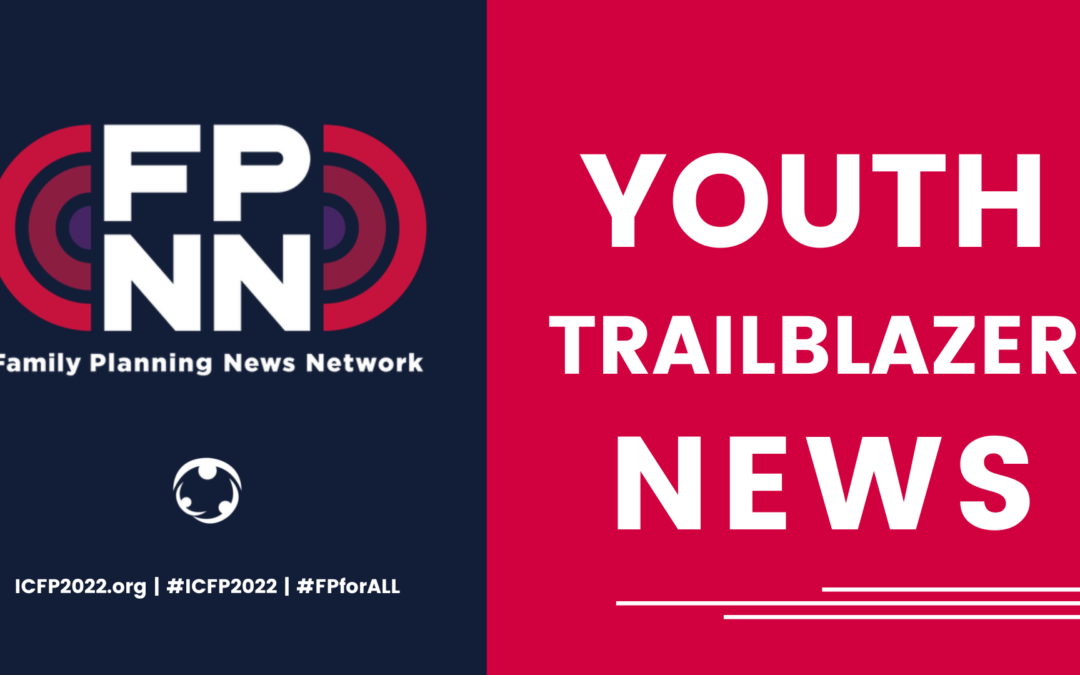By Alison Hoover
2019 120 Under 40 Winner, 2022 ICFP Youth Trailblazer, and Assistant Director of Global Health Programs at Emory University School of Medicine
As a vasectomy researcher, Alison Hoover is committed to ensuring that everyone has the knowledge, products, and services needed to realize their fullest reproductive rights. However, she acknowledges there remains a considerable gap in the conversation around reproductive health for men. While HIV testing is widely discussed, there is little discourse on other reproductive health options available to men, leading to a lack of awareness, discomfort, and misconceptions about vasectomy and its side-effects.
Vasectomies are Safe
Vasectomy is a safe, effective, and permanent method of contraception that has been available for over 50 years, but its uptake still remains limited. A vasectomy involves the cutting and sealing of the vas deferens, the tubes that carry sperm from the testicles to the urethra. This prevents sperm from entering the semen and therefore does not have the ability to fertilize. The procedure is typically done under local anesthesia and takes about 15-30 minutes. Recovery time is minimal, and most men can resume normal activities within a few days. In her conversations and research, Hoover finds that many men have questions about their reproductive health options, but aren’t aware of where to find answers.
Men Should Take Up the Responsibility
Hoover attests that there is a common belief that “men won’t get vasectomies,” but it is a self-fulfilling prophecy resulting from a lack of education and access for the men who want it. It is critical to include men in the conversation around family planning, as it does not take resources away from reproductive healthcare for women. Men taking the lead on contraception management relieves their partners of this default responsibility often placed on women, and provides another safe and viable option for those seeking family planning resources. Hoover notes that we cannot achieve universal health coverage by focusing family planning efforts on only half the population.
It is crucial to adopt the same mentality for men as we do for women when it comes to family planning. The burden of family planning often falls on women—this is reflected in the global contraceptive method mix, where tubal ligation constitutes 27% while vasectomy stands at just under 3%. Gender inequality in family planning grows when we do not hold men accountable for their active participation in family planning education.
We Can Bring About Critical Change
“It is a just and worthy cause to think differently about engaging men in the wake of changing abortion laws, such as in the US,” says Hoover. “This is a moment of change, globally. The echoes of climate crises, COVID-19, and economic instability are resonating and influencing how people around the world envision their ideal family.” We cannot overlook this critical opportunity to meet men and boys where they are; men need to see themselves as equal partners and essential to the conversation, and we must work to expand, improve, and increase access to their contraceptive options to achieve true reproductive health equity.
Hoover asserts that getting a vasectomy is an act of love and accountability that the global family planning and reproductive health community cannot afford to ignore. We must engage the other half of the population and recognize that traditional views of vasectomy candidacy must evolve to meet the changing landscape of family planning.
More About Male Involvement
You can watch Alison Hoover’s ICFP LIVE Stage segment with Dr. John Curington titled, “Testicle Festival: FAQs on vasectomies and building successful vasectomy programs.”

